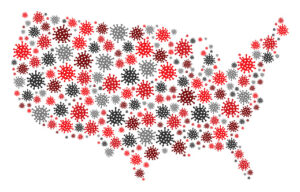In March 2020, just a few months after the COVID-19 pandemic began in China, the U.S. launched the REDS Epidemiology, Surveillance and Preparedness of Novel SARS-CoV-2 (RESPONSE) study to determine the safety of the blood supply—specifically seroprevalence in blood donors and transfusion-transmission of SARS-CoV-2. To this end, the RESPONSE study examined approximately 258,000 blood donations collected from March 2020 through September 2020 in six geographic regions—Northern California, Pacific Northwest, New York City, Southern California, Massachusetts/Northern New England, and the Upper Midwest. A total of 17,995 minipools (6 or 16 donations per pool) were screened for SARS-CoV-2 RNA using a transcription-mediated amplification (TMA) assay. Positive minipools were confirmed with a different TMA assay targeting a separate region of the SARS-CoV-2 genome and serially diluted to determine viral load, but sample volume limited testing each donation separately. Only three minipools were confirmed positive (1.16 per 100,000 donations; 95% C.I., 0.40 to 3.42). Further testing revealed that only one of the positive samples was reactive to SARS-CoV-2 antibodies, and estimated viral loads were low (<1000 to <4000 copies/ml). In addition, viral infectivity was not observed in cell cultures. Furthermore, no cases of SARS-CoV-2 transfusion transmission have been reported worldwide. These data support current recommendations that blood donations need not be screened for SARS-CoV-2.
Reference:

